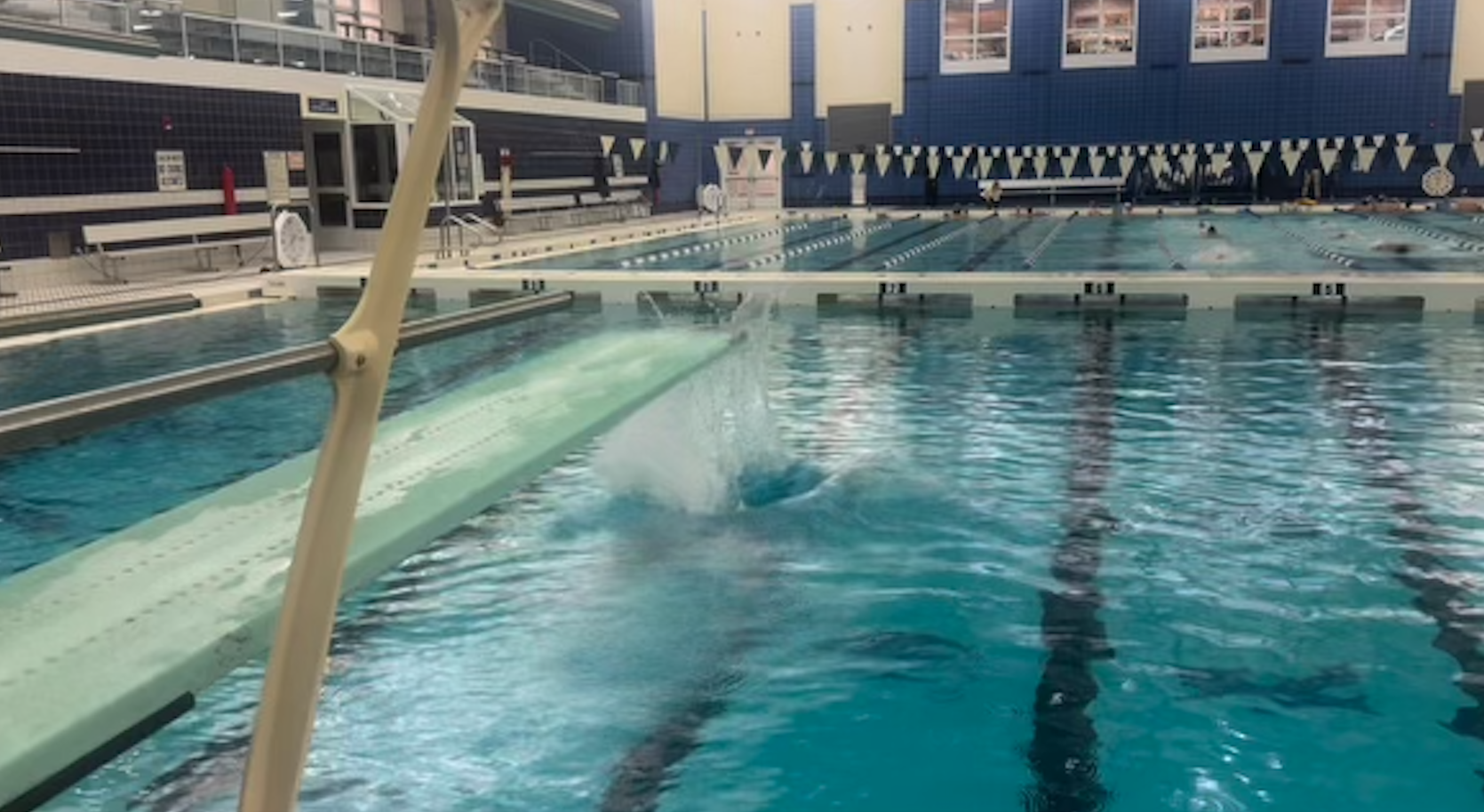
Sometimes during diving practice, the divers ask a manager or coach to take a video of them trying new dives or working on specific skills. It's helpful for them to see exactly what's going on, as dives often feel quite different than they appear. The photo above is the screenshot of the tail-end of one such attempt at learning. While I've posted only the view of the moment after the diver entered the water, you should know that the original video was actually quite long, maybe over a minute.
How long does it take to do one dive, you might wonder, since the combination of being merely one-meter up and beholden to gravity makes it seem that nothing relating to diving could take that long. Of course, the answer is that the diver stood there for almost the whole minute and then took less than two seconds to enter the water. The answer to your next question is fear. Some of the dives kids do are very scary. ALL of the dives kids do are scary when they first learn how to do them. In fact, learning to dive well is a constant balance between learning to control one's body in complicated ways and learning to over-ride the part of a human brain that says, "Hey, you, you could get hurt trying this movement!"
Scared divers will do the front approach and not go in. They will bounce in the back approach and then stop bouncing again. They will do either approach and, at the last second, jump instead of diving. Or they might change plans in mid-air to do a safer, easier dive. All of these dive-fails happen when the diver gets into their head rather than learning to ignore the protective inner voice. (By the by, my use of the word "fail" isn't harsh or mean. When a diver does anything other than the announced dive in a meet, that diver gets a "fail dive" score of 0.)
Early in the season, one of my new divers, after learning the front and back approach and three new dives in the first two weeks said about another new dive, "This is hard for me because I'm not brave."
Instead of pointing out the obvious fact that she is quite brave, I told her that she didn't have to be brave. She could go anyway. We don't need to feel confident about everything we do. We should expect to fail at lots of difficult tasks as we master them. And we should keep trying, learning, going, diving in anyway.
This advice is true on the board and in life. We don't have to feel unafraid to keep taking tiny steps or giant leaps in the right direction. As the podcast reminds us, we can do hard things.
Want to share any advice or anecdotes in the comments?
I just love this! While I know one does not need to be a diver to understand the lesson, I will be sharing this with a few divers in my life.
Yay, you’ve raised a great diver who’s probably learned a ton of great messages from her excellent work in the sport!
I agree! How can we encourage this with social pressure and college pressure here at Hotchkiss? It should be something we are always talking about as we try to encourage these kids to be good learners, not just good students. Thanks for sharing.
I hear you. There are so many situations in which we’d be better off if we acknowledge that something’s scary and do it anyway. I’m not sure how to train people to bypass the scared part of the brain, but I do think the more we do scary things, the more we can–in new situations–remind ourselves that we can do scary things.
People frequently cite their own lack of a general quality as a reason not to attempt a particular challenge: I’m not brave/coordinated/smart enough to try that. But I think it might be the opposite: the more we try those challenges anyway, the braver/more coordinated/smarter we become.
Exactly! The “do it anyway” rule works to help us become what we’re not!